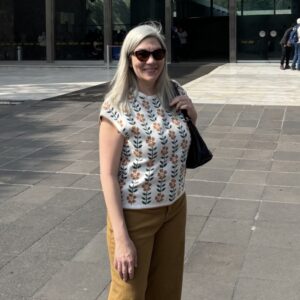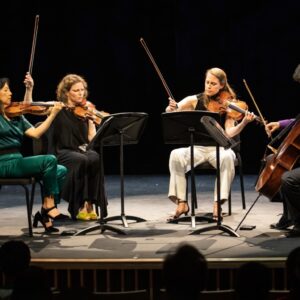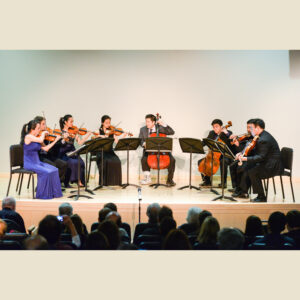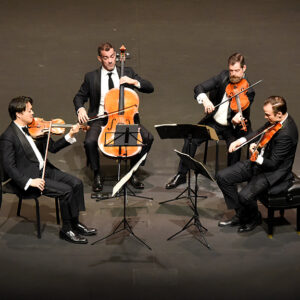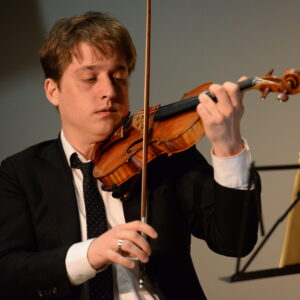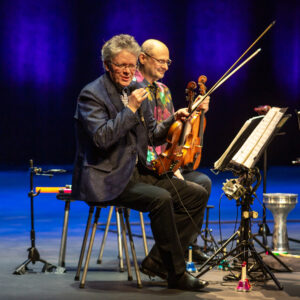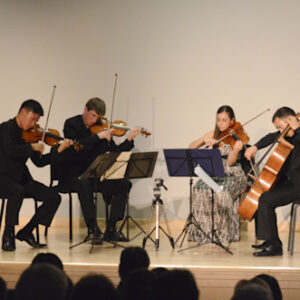This story originally appeared in the spring 2014 Harker Quarterly.
After a season that included a beatboxing flautist and possibly the most experimental performance in the short history of the Harker Concert Series, Austin’s Miró Quartet had a tough pair of acts to follow. They were more than up to the task.
The bouncing staccato of Haydn’s “The Lark” went right along with the mood in the auditorium: airy and light, with Daniel Ching’s violin fluttering in and whistling like the titular bird on its favorite perch. Invoking a pastoral serenity, the quartet took flight through the first movement’s quick tempos, as each member exchanged flurries of notes. They maintained this feeling through the slower, more harmonically focused second movement, with Ching’s melodies again appearing front and center, albeit in the shadow of cellist Joshua Gindele’s yawning basslines; violinist William Fedkenheuer and violist John Largess were the perfect complement to the outer voices. With amazing dexterity, they launched into the finale, handling the challenging passages with finesse and exuberance, ending the exhilarating piece to huge applause.
Elizabeth Dwyer, who was attending her third Harker Concert Series event, said, “I love it. I can’t believe the precision.” Miró Quartet being from Austin was a point of interest for Dwyer, who said she had considered visiting the city for its vibrant arts scene.
“I think it’s fabulous,” said attendee Raiida Thompson, who said she enjoys live music. The social atmosphere of the event, she said, was “very impressive. I was not expecting this.”
Surely no strangers to audiences with high expectations, Miró Quartet wisely chose to include Schubert’s “Death and the Maiden” as the closing piece. Though occupying a somewhat ironic position as a crowd-pleaser in the chamber music canon (it essentially outlines Schubert’s stages of grief as he neared his own death), it was nonetheless a welcome, if familiar, treat for an audience that had just been taken through Dutilleux’s disorienting nighttime odyssey.
The encore was a selection from Schubert’s Unfinished Symphony, ending with an also-unfinished violin line that seemed to delight Ching to no end, leaving him smiling as the final note hung in the air along with all the possibilities of what may have come after.





